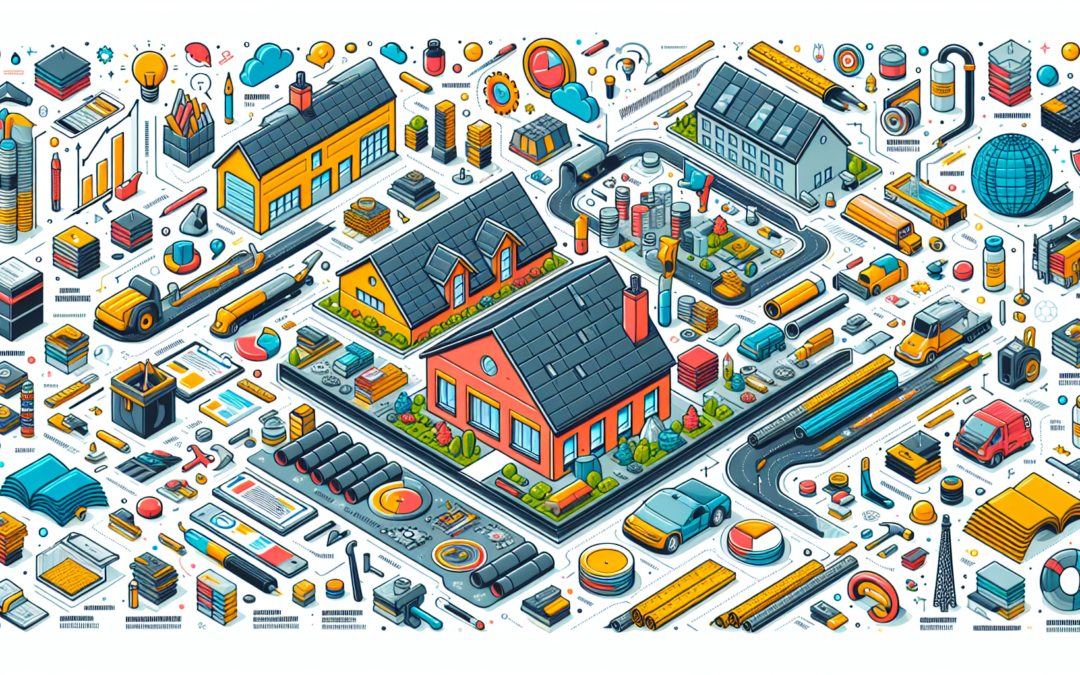Types of Business Roofing
There are several key types of roofing used in the business world. Here are a few:
- Flat Roofs: These are very common in commercial buildings. They are easier to install over large areas and can be more cost-effective. However, they need good drainage to prevent water from pooling and causing damage.
- Metal Roofs: Known for their durability, metal roofs can last up to 50 years or more. They’re resistant to extreme weather conditions and can also help in reducing energy costs by reflecting sunlight.
- Shingle Roofs: While more common in residential buildings, some businesses choose shingle roofs for their aesthetic appeal. They come in many materials, including asphalt, wood, and slate.
- Built-Up Roofing (BUR): This type is made with several layers of bitumen and reinforcing fabrics. It’s a thick, durable option for flat roofs.
- Green Roofs: These roofs are covered with plants, which can reduce heating and cooling costs, manage water runoff, and provide a pleasant aesthetic. However, they need additional structural support to handle the extra weight.
Important Factors to Consider
When choosing the right roof for your business, you should think about a few important things:
- Weather: Your local climate plays a huge role in determining the best type of roof. For example, areas with heavy snowfall need roofs that can bear the weight of the snow.
- Energy Efficiency: Some roofing materials and colors can reflect sunlight, helping to keep your building cooler and reduce your air conditioning costs during the warmer months.
- Maintenance: Different roofs require different levels of maintenance. It’s important to know how often your roof will need care and what kind of costs are involved.
- Cost: The initial cost of a roof can vary widely depending on the material and the size of your building. Remember to also consider the long-term costs of maintenance and potential energy savings.
Getting the Right Help
Picking the right roof and making sure it’s properly installed can be a big task. It’s a good idea to get help from professionals who specialize in commercial roofing. They can give you personalized advice based on your building’s specifications and your local climate. Also, a good roofing contractor will offer warranties for their work, giving you peace of mind.
Remember, your business’s roof is a big investment. Taking the time to understand your options and make informed decisions will help ensure that you get the best value and protection for your business. Whether you’re installing a new roof or maintaining an existing one, knowing the basics of business roofing can go a long way.

